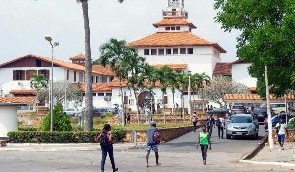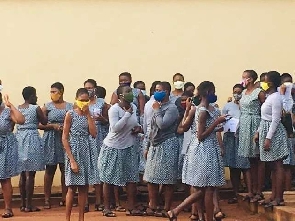Ghana is seeking the patent for all kente products as a traditional heritage, Mr Emmanuel Gawuga, Chairman of the National Folkloric Board (NFB) announced on Friday.
He said detailed documents signed by traditional authorities of the major Kente production areas in the country and government representatives was presented to UNESCO in February, last year and approval was expected by the end of this year.
Mr Gawuga was speaking at a two-day seminar on folklore for District Cultural Officers (DCOs) in the Volta Region in Ho on Friday. Similar seminars have been planned for the Upper West and Brong Ahafo regions at later dates.
He said the comprehensive bibliography on kente presented for the bid should be convincing to deter any country from countering it. Mr Gawuga regretted that western companies were copying kente products and selling them cheaply on the market to the detriment of original producers in Ghana.
He hoped that royalties to be paid to Ghana in the event of winning the patent would be substantial to transform the kente industry into a major cultural asset.
The seminar is to find ways for the Centre for National Culture (CNC), which has offices in all districts to compliment the NFB in the documentation of folklores in the country.
Mr Gawuga said the NFB, for its task of documenting folklore, has a staff of only four, and has therefore, decided to network with the CNC since the mandate of the two organisations were interrelated. He said it was important that documentation was done expeditiously before those who had the expertise die.
Mr Gawuga said for example that while it was common knowledge that there were traditional healers who could treat fractures better that in hospitals the knowledge about their skills were not documented and that it could get lost at any time.
He regretted the trend by governments to pick on the cultural sector if there was to be any pruning of spending.
He warned that: "if the trend continued the country could be overwhelmed by a culturally stranded youth whose behaviour would be out of norm with Ghanaian modes of doing things."
Mr William Addo, Volta Regional Director of the CNC called for the institution of a cultural fund on the lines of the GETFUND to address the cultural needs of the country.
He said Ghana could loose her identity if funds were not made available to the cultural sector to inculcate Ghanaian attributes in the youth.
Mr Addo said Ghana at 40 should have had a working cultural policy and warned that the full impact of the neglect of the cultural sector might not be felt until it surfaced in behaviours.
Business News of Friday, 9 January 2004
Source: GNA












